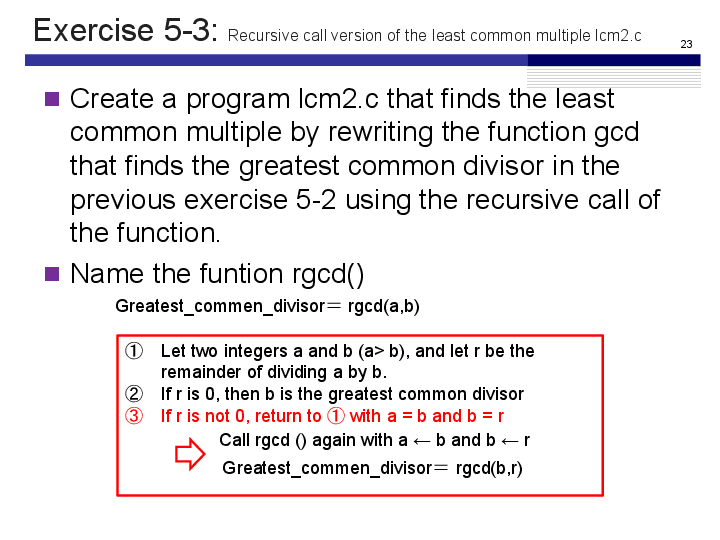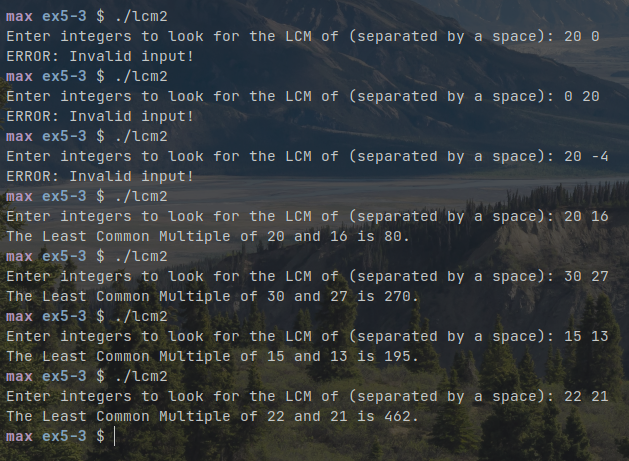Exercise 5-3: lcm2.c
Maximilian Fernaldy - C2TB1702

Using recursive function calls to find greatest common divisor
We can copy most of the code from lcm.c except for the gcd() function. For this exercise, we should use recursive function calls to get the greater common divisor. Since the Euclidean algorithm is intuitively recursive, it's relatively simple to program the recursion.
int recursiveGCD(int a, int b) {
if (a < b) { // Swap a and b to make sure b is smaller than a
a += b;
b = a - b;
a -= b;
}
// Euclidean algorithm
if (a % b != 0) { // If a % b != 0, recursively call the function
// with b as a and a%b as b
b = recursiveGCD(b, a % b);
}
return b;
}
Similarly to lcm.c, if a is smaller than b, we need to swap their values. Then, to implement the argument itself, if the remainder of is 0, the code inside the if statement will not execute, and the function will proceed to return b as the greatest common divisor. If the remainder is not 0, the function recursively calls another recursiveGCD() instance, but the value of b is used for argument a and the value of a % b is used for the argument b. That instance will call another instance if the remainder is not zero, and so on until the remainder is zero. When that happens, the function will have found the greatest common divisor, which is the value of b in that function's instance. This is why we have to reassign the return value of recursively-called functions to the variable b of the higher-level functions (i.e., the function that called the lower level functions). We can try to visualize what happens when is passed into the function recursiveGCD() like so:

Compiling and running the code gives the following output:
